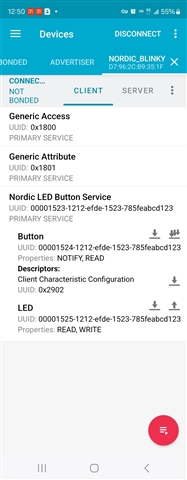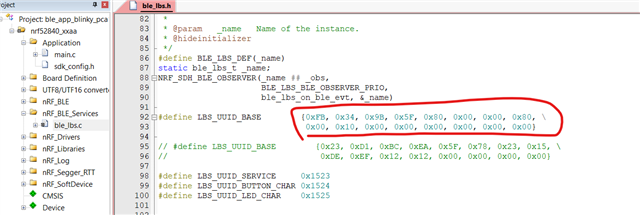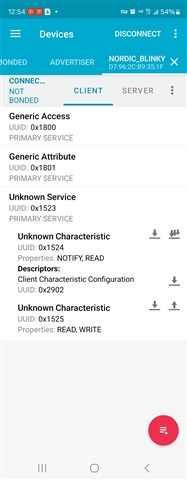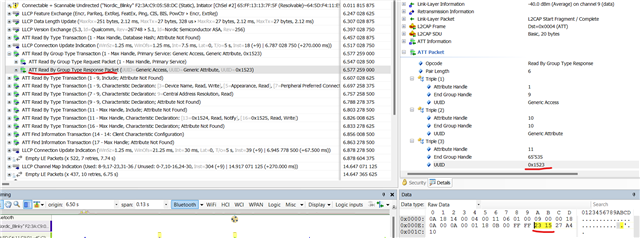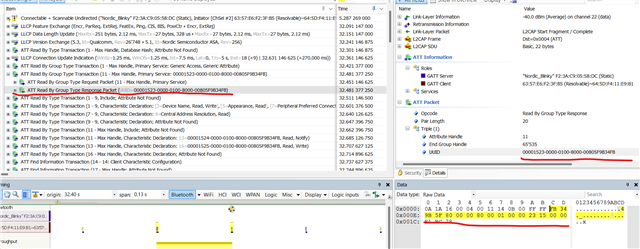Hi Team
Customer want to use Bluetooth_Base_UUID (00000000-0000-1000-8000-00805F9B34FB) as 128 bit UUID base. They can use any other 128 bit UUID base but this one. When they set the base 128 bit UUID to Bluetooth_Base_UUID in their customized service, our softdevice treat it as 16 bit UUID. So do we have any method to use Bluetooth_Base_UUID as 128 bit UUID base? I can re-produce this issue in nRF5 SDK 17.1.0.
Regards
Victor




